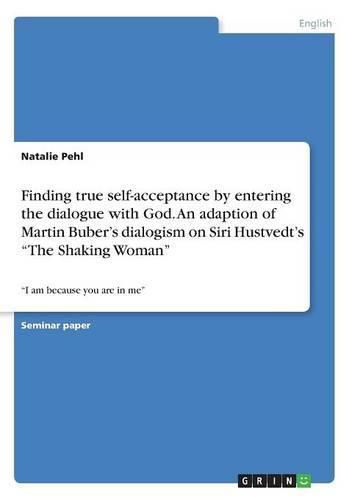Readings Newsletter
Become a Readings Member to make your shopping experience even easier.
Sign in or sign up for free!
You’re not far away from qualifying for FREE standard shipping within Australia
You’ve qualified for FREE standard shipping within Australia
The cart is loading…






Seminar paper from the year 2016 in the subject American Studies - Literature, grade: 1, 3, Johannes Gutenberg University Mainz (Department English and Linguistics), course: Literature and Medicine, language: English, abstract: Knowing one’s own self has been defined as one of the most difficult tasks to accomplish in our lives. Nevertheless, all of us feel the inner need to relate to ourselves in order to become holistic beings. But how do we get to know the self? In contrast to collectivism, individualism is considered an egoistical doctrine that selfishly ignores the needs of others. However, the terms do not necessarily exclude each other. On the contrary, identity is based on relationships and on the dialogue with others. During the twentieth century, existential philosophy developed as a discipline which faced those big existential questions and tried to provide a guideline to find one’s personal identity in life. Eventually, existential philosophers such as Martin Buber and Mikhail Bakthin became known as pioneers of the so-called dialogical philosophy. In opposition to individualism, Buber established a concept of getting to know the self from a totally different point of view. Instead of focusing exclusively on the subject as an individual, Buber presents an approach which stresses the importance of the other person. In his view, two individuals establish an intersubjective relationship in order to achieve self-formation. In her book The Shaking Woman Siri Hustvedt describes her struggle of self-identification and self-acceptance. Hustvedt suffers from physical shaking but no one is able to find a certain diagnosis for her illness. Nevertheless, Hustvedt manages her inner conflict and finds self-acceptance in the end. This paper shall provide evidence in how far Buber’s concept of dialogism supports Siri Hustvedt in order to resolve her inner conflict. By entering the dialogue with the other we are
$9.00 standard shipping within Australia
FREE standard shipping within Australia for orders over $100.00
Express & International shipping calculated at checkout
Seminar paper from the year 2016 in the subject American Studies - Literature, grade: 1, 3, Johannes Gutenberg University Mainz (Department English and Linguistics), course: Literature and Medicine, language: English, abstract: Knowing one’s own self has been defined as one of the most difficult tasks to accomplish in our lives. Nevertheless, all of us feel the inner need to relate to ourselves in order to become holistic beings. But how do we get to know the self? In contrast to collectivism, individualism is considered an egoistical doctrine that selfishly ignores the needs of others. However, the terms do not necessarily exclude each other. On the contrary, identity is based on relationships and on the dialogue with others. During the twentieth century, existential philosophy developed as a discipline which faced those big existential questions and tried to provide a guideline to find one’s personal identity in life. Eventually, existential philosophers such as Martin Buber and Mikhail Bakthin became known as pioneers of the so-called dialogical philosophy. In opposition to individualism, Buber established a concept of getting to know the self from a totally different point of view. Instead of focusing exclusively on the subject as an individual, Buber presents an approach which stresses the importance of the other person. In his view, two individuals establish an intersubjective relationship in order to achieve self-formation. In her book The Shaking Woman Siri Hustvedt describes her struggle of self-identification and self-acceptance. Hustvedt suffers from physical shaking but no one is able to find a certain diagnosis for her illness. Nevertheless, Hustvedt manages her inner conflict and finds self-acceptance in the end. This paper shall provide evidence in how far Buber’s concept of dialogism supports Siri Hustvedt in order to resolve her inner conflict. By entering the dialogue with the other we are